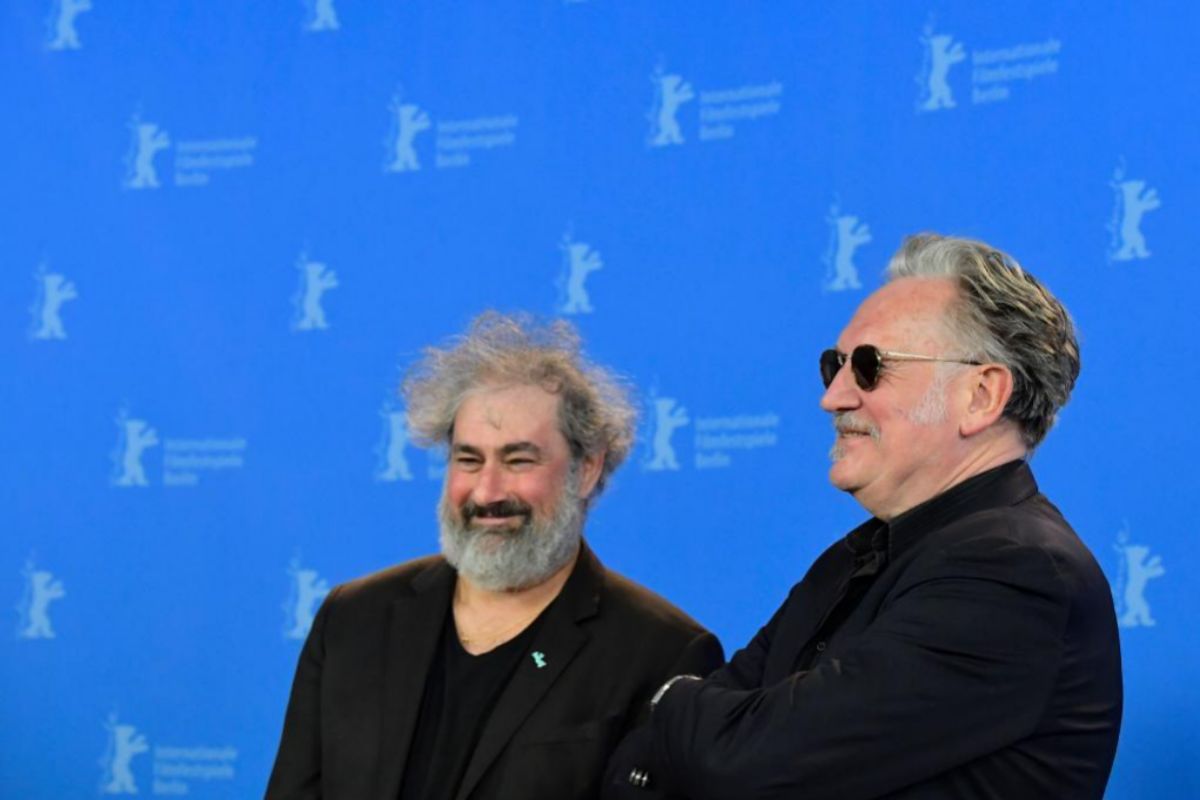Abel Ferrara is more Roman than, for example, Christian. Or apostolic. And not only because, although born in the New York Bronx, he lives in the Italian capital, but even by Foucault. The French philosopher said that by caring for oneself, the Greco-Roman world thought individual freedom as ethical. Great achievement. Then, as time went by, thinking more about the account in one ended up being suspicious. Too selfish maybe. Or just contradictory. In Christianity, the author of 'Words and things' continues to reason, in order to save oneself one must be at least as attentive to oneself as Saint Augustine was, but salvation, care, only comes through the renunciation of oneself . Paradoxical and 'antiferrarian'.
' Siberia ', the last film of the director in which Willem Dafoe acts as a medium and heteronym, is the test of resistance to how far the filmmaker is determined to build a universe, ethical and aesthetic, from the smallest wrinkle of each of his rugged obsessions more intimate, more own, more intimately own. Even maybe, and yes, in more obvious solipsism.
Let's say that again, as in ' Tomasso ', his previous work, the idea is to offer the viewer a self-portrait beyond the bowels. The difference is that if in this last film the meditative tone, almost inconsequential, involved everything in a strange and luminous familiarity, now it is a question of rehearsing the opposite pole. Everything is dark, everything so perfectly free, and even banal in its gestures, that there is no possibility of judgment or of meaning. Only of fascination. Or vomit
The film places its protagonist, who by force can not be other than the director himself, in a remote and very cold place. And completely isolated. There will appear pregnant women, men who speak strange languages, the past turned into a nightmare and the certainty of a future that will never come. That and a child. They are not so much hallucinations as flashes of memory, as reincarnated flesh, as an image taken from itself and from any reference other than itself . It is Ferrara who, in his furious reverie, makes a dead fish (sic) speak.
Ferrara is convinced that only he is already the only possible argument. The only admissible ethic goes through the transformation of himself into cinema. And in this certainty it is exercised with a conviction that moves both astonishment and condescension. Away from him any threat of Christian charity, said Foucault, to the other. If something is far from its ideology is the renunciation of itself. Excessive, futile, metaphysical, ridiculous and magnetic. Everything at once. It is cinema so folded on its own hallucination to which only it is possible to render pleitesía. Or hate him forever. No one crashes better against the sky than Ferrara competing with Lars Von Trier to see who stages better than chaos reigns. Forever.
Comedy in competition
For the rest, the official section followed and, to the general surprise, a comedy. But a comedy bareback, really, without excuses, without complicity and without more self-awareness than that provided by nonsense. The French Benoît Delépine and Gustave Kervern presented ' Effacer l'historique ' (Clear history) and with it, their best work to date.
The authors of ' Mammuth ' and colleagues of Michel Houellebecq (who reappears) laugh and reflect (all in one) on the accidents of the modern world and, as if it were the current Jacques Tati, coincide with a precision that scares each of our customs with all our chasms. Why will death itself be so funny? Again it becomes clear that a comedy is when a man falls into a ditch and is killed. Tragedy is when a stepfather comes out. Word of Mack Sennett.
From the 'riders' to the addictive empathy to the television series through the confusing paths of sex on the Internet, everything is placed in a kind of mirror that does not fit either sperm or exaggeration or parody. What is seen is what happens and what happens is delusional. And, the worst, it has no choice. Good for the lack of prejudices of this new Berlinale.
And not far, 'My little sister ', by the Swiss Stéphanie Chuat and Véronique Reymond, who fulfills the obligation contracted for years to always offer in Berlin a film starring the irrefutably immense Nina Hoss. The proposal fits the rigors of the family-Bugues-German drama. Intense, redice, disproportionate, very tormented, unbeatably acted, but, and also counts, load bearing.
She is a playwright and he is an actor. In addition to twin brothers. His cancer that can only save a donation from her crosses her path to revolutionize everything. If you want it is a somewhat imposing update of the story of Hansel and Gretel. That or a study on creation, or the act of creating, before death. That or just death. The result is exactly what is promised in the exact terms that are promised. In the end, you can the obligation of depth, the need to move.
And so it was, Ferrara, the self of Ferrara, in an unequal and huge battle against himself.
According to the criteria of The Trust Project
Know more- cinema
- Film reviews
- culture
- Berlin festival
CineDan Scanlon, director of Pixar's 'Onward': "Too much technology makes life too bland"
The Berlinale chokes on 'My Salinger year', his particular banana fish
CinemaThe Safdie redefine the limits of the unlimited in 'Diamonds in the rough'

